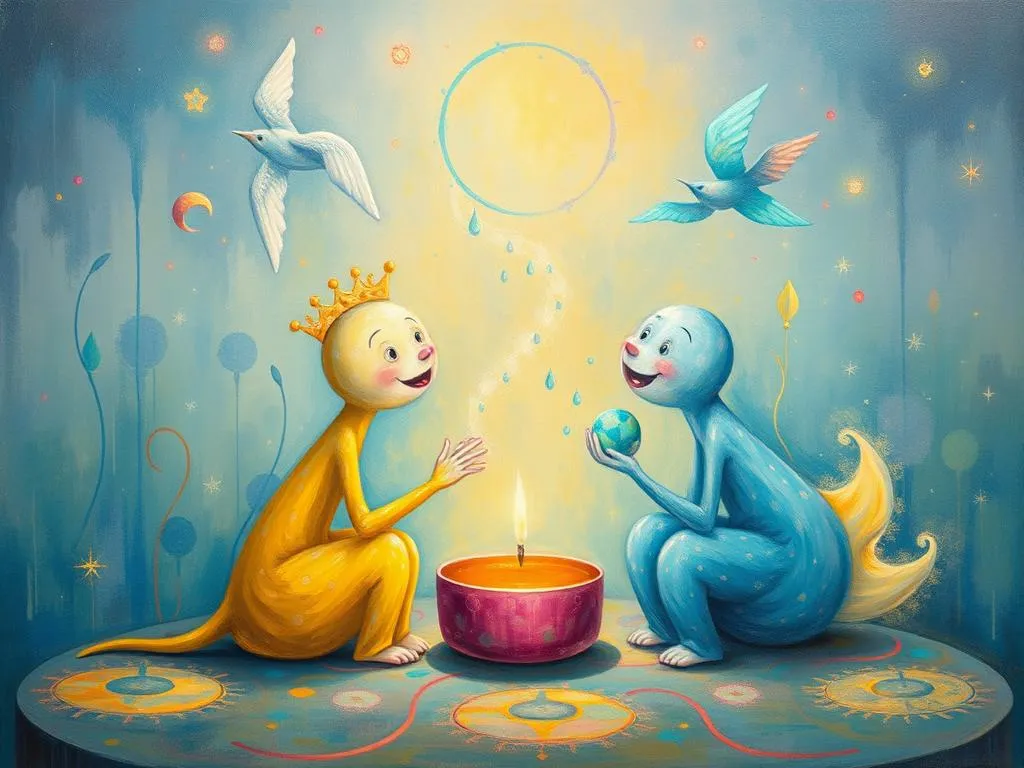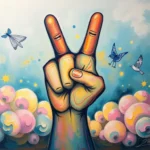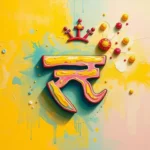
Dreams have long been a source of fascination and intrigue for humanity. They offer a glimpse into our subconscious, reflecting our fears, desires, and unresolved issues. Among the myriad of dream themes, last rituals evoke particularly powerful emotions. These dreams often stir feelings of closure, transformation, and sometimes, anxiety about endings. Understanding the meaning behind last rituals in dreams can provide valuable insights into our waking lives, helping us confront what we may be avoiding or need to release.
Symbolism and Meaning
At the heart of dreams involving last rituals lies the symbolism of endings. These dreams may signify the conclusion of a significant chapter in one’s life, such as the end of a relationship, the closing of a career path, or even the transition into a new phase of personal development. In many cultures, rituals are performed to honor these transitions—be it a funeral, a graduation ceremony, or any event marking a significant change. Thus, dreaming of last rituals can symbolize a need for acknowledgment and closure.
Death is a recurring motif in last ritual dreams, but it is essential to approach this symbol with nuance. Rather than being a harbinger of doom, death in dreams often represents transformation and the shedding of old identities. The act of mourning in a dream may indicate that the dreamer is grappling with difficult emotions associated with letting go. This can be particularly relevant if the dreamer has experienced a recent loss or change in their life. The feelings of grief present in these dreams can highlight the importance of allowing oneself to process emotions fully.
Ceremony is another significant symbol. The structure of a ritual—a series of actions performed in a specific order—can suggest a desire for control in the face of life’s uncertainties. Dreaming of participating in a ceremony may indicate the dreamer’s yearning for order, especially when navigating complex emotions about change. Alternatively, if the dream involves chaotic elements amidst a ritual, it might reflect feelings of being overwhelmed or unprepared for the transitions one is facing.
Lastly, the participants in the dream play a crucial role in its interpretation. The presence of loved ones can signify support during times of change, while the absence of familiar figures might indicate feelings of isolation. If the dreamer is leading or directing the ritual, it could symbolize a sense of agency and acceptance of the changes ahead. Conversely, feeling like an outsider in the dream suggests struggles with acceptance or a fear of being left behind.
Key Scenarios and Variations
The beauty of last rituals dreams lies in their diversity. Each scenario offers unique insights into the dreamer’s psyche. For instance, a dream where one is conducting a funeral can reflect a proactive approach to grief and acceptance. It suggests that the dreamer is ready to honor their past and move on. In contrast, witnessing a funeral without participation may indicate feelings of powerlessness or unresolved issues that need attention.
Another variation could involve preparations for a wedding, which can symbolize new beginnings rather than endings. A wedding dream that incorporates elements of ritual could indicate a transition filled with hope, celebrating the start of a new phase rather than lamenting the past. This duality of the ritual can provide a sense of balance, highlighting that endings and beginnings are often intertwined.
In some scenarios, the dream may take place in a location that holds personal significance, such as a childhood home or a place of past trauma. This setting can amplify the emotional weight of the dream, suggesting that the dreamer is revisiting old wounds or memories as part of their healing process. The specific details of the location—whether it feels comforting or threatening—can further illuminate the dreamer’s emotional state and readiness to confront their past.
Additionally, the emotional tone of the dream plays a critical role in its interpretation. A dream that is peaceful and reflective may indicate acceptance and readiness for change, while a nightmarish version filled with chaos and dread often points to internal conflict or denial about the changes occurring in one’s life. Recognizing these emotional undertones can help the dreamer understand their feelings about their real-life circumstances.
Real-Life Connections and Takeaways
Reflecting on a last rituals dream can lead to profound insights about one’s life. These dreams often serve as a reminder that change is a natural part of existence. When faced with significant transitions, whether they are welcome or not, it’s crucial to engage in self-reflection. Ask yourself what aspects of your life are coming to an end and how you feel about them. Are there unresolved emotions that need to be addressed? Embracing these feelings can pave the way for healing and acceptance.
Practical advice for engaging with these dreams includes journaling about the experience. Documenting the dream’s details, including symbols, emotions, and any notable participants, can help clarify your thoughts and feelings. This process of reflection can reveal patterns or themes in your life that you may have overlooked. It might also be beneficial to explore any rituals you can create for yourself that honor the transitions you are facing. This could be as simple as lighting a candle in remembrance of a relationship or writing a letter to yourself expressing gratitude for the lessons learned from past experiences.
Additionally, consider discussing your dreams with a trusted friend or therapist. Sharing your thoughts can provide new perspectives and foster a sense of connection, particularly if you feel isolated in your experiences. Engaging in conversations about change and loss can normalize these feelings, making it easier to navigate them.
Incorporating mindfulness practices can also help in processing emotions tied to last rituals dreams. Techniques such as meditation and deep breathing can create space for acceptance and understanding of your emotional landscape. By cultivating a sense of presence, you can approach your feelings with compassion rather than fear.
Lastly, remember that dreaming about last rituals is a natural part of the human experience. It reflects our innate desire to make sense of our lives and find meaning in their complexities. Embrace these dreams as opportunities for growth and transformation, allowing them to guide you in your waking life. By acknowledging and honoring the endings, you also pave the way for new beginnings, making space for the possibilities that lie ahead.
In conclusion, last rituals in dreams are rich with symbolism and meaning. They encourage reflection on the transitions we face and the emotions we carry. Each dream, with its unique scenarios and variations, provides a mirror to our inner selves, offering insights that can illuminate our paths. Embrace these dreams as a guide, and take the time to reflect on their messages. The journey of understanding and acceptance can lead to profound personal growth and transformation.







